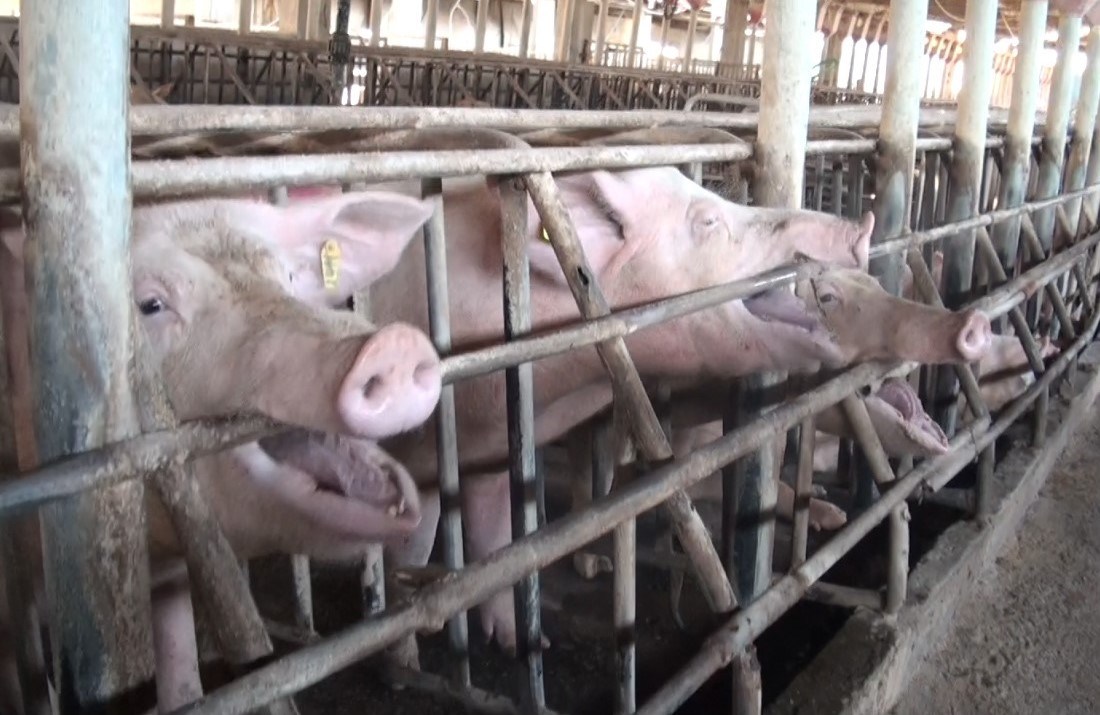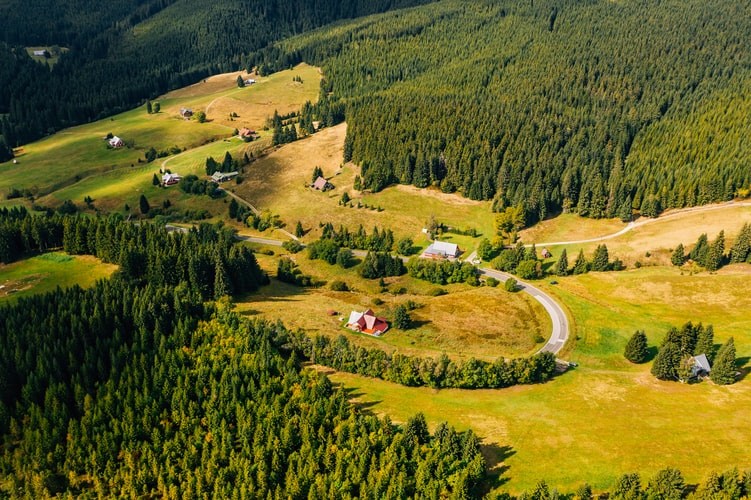The European Green Deal sets out how to make Europe the first climate-neutral continent by 2050. If the Farm to Fork Strategy is at the heart of Green Deal, sustainable and organic farming is at the heart of the strategy.
The future of intensive animal farming in EU – or factory farming - is one of the issues in the strategy. At a webinar last week (2 June), ethologist dr Jane Goodall, 86, famous for her study of wild chimpanzees in Tanzania, told an EU audience that the health and wellbeing of people, animals and the environment are interdependent.
The webinar was organised by the Brussels office of Compassion in World Farming which is campaigning for farm animal welfare and co-hosted by several MEP from all major political party groups.
“All animals matter, every animal is an individual just as every human being is an individual and all are deserving of our compassion, respect and care. They have personalities, minds and feelings and they feel pain,” Goodall said.
“However, destroying nature and exploiting animals in intensive ‘factory’ farms shows complete disregard towards life. This has consequences for us all, as we have clearly seen in the Covid-19 pandemic.”
Speaking on-line from her home in the United Kingdom, she described herself as a world citizen who grew up loving animals. After reading Australian moral philosopher Peter Singer’s book “Animal Liberation” (1975), she felt only fear and pain when seeing meat on the table and decided to become vegetarian and vegan where possible.
Moral philosophers still discuss whether humans are allowed to kill animals for food. Swedish philosopher Torbjörn Tännsjö told The Brussels Times that as humans we should give animals a good life and a good death. Apparently, we are allowed to breed, kill and eat them on certain conditions.
What Goodall has experienced is that animals are sentient beings and that they are not that different from humans as was assumed in the past. This has become common knowledge today. Historian Yuval Harari wrote in his second best-selling book “Homo Deus” (2015) that emotions are common to all mammals as well to all birds and probably to some reptiles and even fish.
Animal suffering
But unfortunately, humans can cause tremendous suffering to farm animals, even while ensuring their survival and reproduction.
“The root of the problem is that domesticated animals have inherited from their wild ancestors many physical, emotional and social needs that are redundant on human farms,” Harari explains in his book. “Farmers routinely ignore these needs, without paying any economic penalty.”

"These highly social and intelligent beings spend most of their lives in this condition, as if they were already sausages." (Yuval Harari)
As examples of the suffering in animal farming he mentions the breaking of the emotional mother-infant bond when piglets and calves are separated from their mothers shortly after birth and the confinement of sows in tiny gestation crates.
“I’m just an ordinary person with a passion for animal welfare,” Goodall said. “I don’t have all the solutions but we cannot go back to the old ways of doing business,” she added and hoped that the COVID-19 pandemic will serve as a wake-up call. “To avoid future crises, we must drastically change our diets and move to plant-rich foods.”
On behalf of the European Commission, Stella Kyriakides, Commissioner for Health and Food Safety, presented the Farm to Fork strategy. She admitted that the highly intensive farming systems in Europe has created “significant waste and at times also animal suffering”.
“These phenomena deeply worry me,” Kyrikiades said. “The parts that don’t work are ethically questionable and socially and environmentally unacceptable. Our citizens expect more and we will deliver a better balance to ensure that farming practices are sustainable and food is affordable. Animal welfare is among my priorities. It has always been a concern to me, an issue close to my heart.”
According to Kyrikiades, animal welfare is a priority under the Farm to Fork strategy. The strategy mentions several times the importance of organic and sustainable farming,
It includes clear targets to tackle key areas of concern and promote more eco-friendly farming - such as reducing the use of chemical pesticides, the sales of antimicrobials, the use of fertilizers and the increase in agricultural land under organic farming. However, there is no target concerning the reduction of intensive animal farming.
An earlier, leaked version of the strategy did include a sentence saying that the “Commission will propose to stop stimulating production or consumption of meat” but it was deleted in the final version. “Moving to a more plant-based diet and less meat” was replaced by “Moving to a more plant-based diet with less red and processed meat and with more fruits and vegetables.”
Meat production
In practise it might not make any difference in the short term. Red meat is almost all meat besides poultry. The strategy states now that the “Commission is undertaking a review of the EU promotion programme for agricultural products, with a view to enhancing its contribution to sustainable production and consumption, and in line with the evolving diets.”
In relation to meat, “that review should focus on how the EU can use its promotion programme to support the most sustainable, carbon-efficient methods of livestock production.” The Commission promises to make a legislative proposal for a framework for a sustainable food system before the end of 2023.
Commissioner Kyriakides mentioned some measures that might improve animal welfare even sooner. The Commission is currently evaluating the EU Animal Welfare Strategy, which is expected to be concluded by the end of 2020. It also evaluating the existing rules for animal transport and slaughter. This evaluation will be concluded in 2021 and might lead to a revision of the rules.
Food systems remain one of the key drivers of climate change and environmental degradation, according to the strategy. “Agriculture is responsible for 10.3% of the EU’s green-house gas (GHG) emissions and nearly 70% of those come from the animal sector. In addition, 68% of the total agricultural land is used for animal production”.
Current food consumption patterns are unsustainable from both health and environmental points of view. “While about 20% of the food produced is wasted, obesity is also rising. Over half of the adult population are now overweight, contributing to a high prevalence of diet-related diseases.”
The Brussels Times asked two of the MEPs in the webinar about their views on animal farming and meat production in the Farm to Fork strategy.
MEP Anja Hazekamp (the Netherlands, GUE/NGL) wanted to go a step further in the strategy. “In my view, cancelling EU funds for the promotion of products that have a detrimental impact on our environment, our climate and on animal welfare, is the very least the Commission should do if it is serious about its whole green deal,” she replied.
“It is not our intention to dictate to our citizens what they should eat. We just need them to realize that their choices influence their health, the state of environment and ultimately the welfare of animals,” MEP Martin Hojsik (Slovakia, Renew Europe) commented.
Transition to plant-based food
Is there a chance that the meat production will be affected indirectly by the achievement of the other targets in the strategy?
“The aim to increase the share of organic farming could have a positive impact. But at the same time the Commission is maintaining and even ‘greenwashing’ the intensive livestock industry by proposing so-called ‘sustainable agricultural practices’ in hotspot areas of intensive livestock farming,” Hazekamp replied.
“Intensive livestock farming has a huge impact on biodiversity, on water sources, on the climate and on animal welfare. Keeping huge numbers of animals together also increases the risks of outbreaks of zoonoses (the transmission of pathogens from animals to humans).”
Hojsik replied that he did not find the Farm to Fork strategy as visionary and progressive as the Commission’s biodiversity strategy. “Factory farming and overproduction with too high consumption of meat are real problems. The Commission has chosen to avoid this matter and left it to the European Parliament and the Council to deal with during the work on the reform of the common agricultural policy (CAP).”
What exactly would you propose should be included in the strategy to achieve the goal of sustainable agriculture, including meat production, and the transition to more plant-based protein?
“Currently, more than 7 billion of animals are being kept and slaughtered in the EU for food production every year, “Hazekamp replied.
“Targets should be set to reduce the number of animals kept for food production. Animals should be able to exercise their natural behaviour instead of being cramped together with thousands and locked into cages or mega stables. By focussing more on local production, instead of exports, the production of meat could already be reduced drastically.”
“The transition to plant-based protein is as realistic as we, both policy-makers and consumers, want it to be,” Hojsik replied and proposed to grow more leguminous plants in Europe. “We need to decrease our excessive dependency on imports which are not sustainable and reduce our carbon footprint. Policies can stimulate a shift from meat overproduction to a more plant-based diet.”
“A real change starts with the citizens. Their demands to improve animal welfare and fight climate change and environmental degradation are clear. But so is their demand as consumers. If they make a change when filling their baskets in the shops, we are half way there.”
M. Apelblat
The Brussels Times

